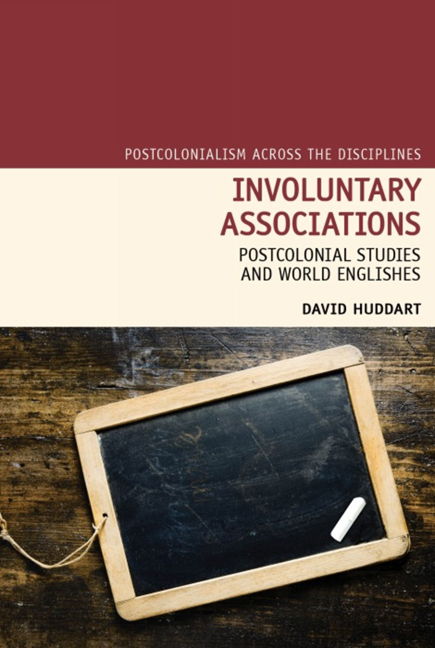Book contents
- Frontmatter
- Dedication
- Acknowledgements
- Contents
- Introduction
- 1 Involuntary Associations: ‘Postcolonial Studies’ and ‘World Englishes’
- 2 Grammars of Living Break their Tense: World Englishes and Cultural Translation
- 3 English in the Conversation of Mankind: World Englishes and Global Citizenship
- 4 Declarations of Linguistic Independence: The Postcolonial Dictionary
- 5 Writing after the End of Empire: Composition, Community, and Creativity
- 6 Slow Reading: The Opacity of World Literatures
- Conclusion: English Remains, Englishes Remain
- Bibliography
- Index
2 - Grammars of Living Break their Tense: World Englishes and Cultural Translation
- Frontmatter
- Dedication
- Acknowledgements
- Contents
- Introduction
- 1 Involuntary Associations: ‘Postcolonial Studies’ and ‘World Englishes’
- 2 Grammars of Living Break their Tense: World Englishes and Cultural Translation
- 3 English in the Conversation of Mankind: World Englishes and Global Citizenship
- 4 Declarations of Linguistic Independence: The Postcolonial Dictionary
- 5 Writing after the End of Empire: Composition, Community, and Creativity
- 6 Slow Reading: The Opacity of World Literatures
- Conclusion: English Remains, Englishes Remain
- Bibliography
- Index
Summary
It is normally supposed that something always gets lost in translation; I cling, obstinately, to the notion that something can also be gained.
Salman Rushdie, ‘Imaginary Homelands’Introduction
When we consider the ‘official’ cultural translation demanded as part of immigration or naturalization, we can readily gauge the difficulties obscured by certain concepts of cultural translation. Consider the example of Singapore. Recent government projections suggest that Singapore's population will need to expand considerably in order to maintain economic growth. If that argument were to be accepted, the question would then become one of managing the necessary immigration, helping to produce the target identity ‘Singaporean’. Unsurprisingly, one aspect of debates concerning this immigration has been the possibility of a language requirement, with the proposed language most often being English. For example, Vasu and Phua recall English's importance in the making of Singapore, and argue that it will continue to contribute to an inclusive vision of Singaporean identity. Indeed, they note that ‘The argument that citizenship requires English competency is not novel’ (2008, 34). Their comparisons are Australia, Canada, and New Zealand. It is no surprise that the UK is not on their list, partly because of colonial history, but also because of the facts of contemporary language policy. For if we switch our attention to UK immigration and naturalization requirements we do indeed find already existing language requirements (knowledge of English, Welsh, or Scottish Gaelic) that are often in the process of being fine-tuned. As part of those requirements, there is an exemption list for majority Anglophone nations, a notable absence from which is Singapore. So, one nation debating the possibility of introducing an English language requirement is pointedly if implicitly not an English-owning nation, according to another. How should we respond to this curious mismatch of perception and self-perception? Tempting as it may be simply to blame the ignorance and racism of those who devised UK language requirements, there are more interesting possibilities here. While I earlier mentioned a target identity, by analogy with target languages, intuitively English cannot work with that kind of model of success, which is both the one presupposed by Singaporean language policy, and something resisted by Singlish.
- Type
- Chapter
- Information
- Involuntary AssociationsPostcolonial Studies and World Englishes, pp. 32 - 51Publisher: Liverpool University PressPrint publication year: 2014



